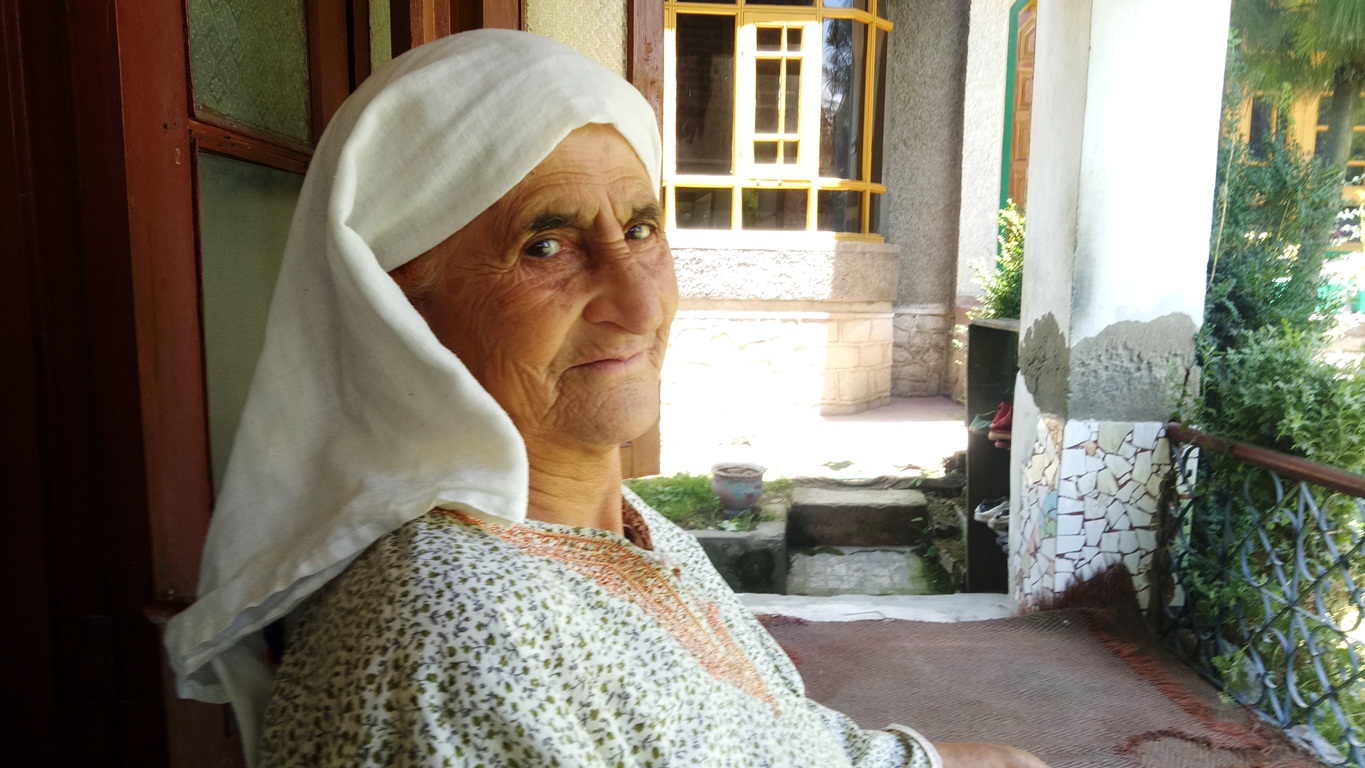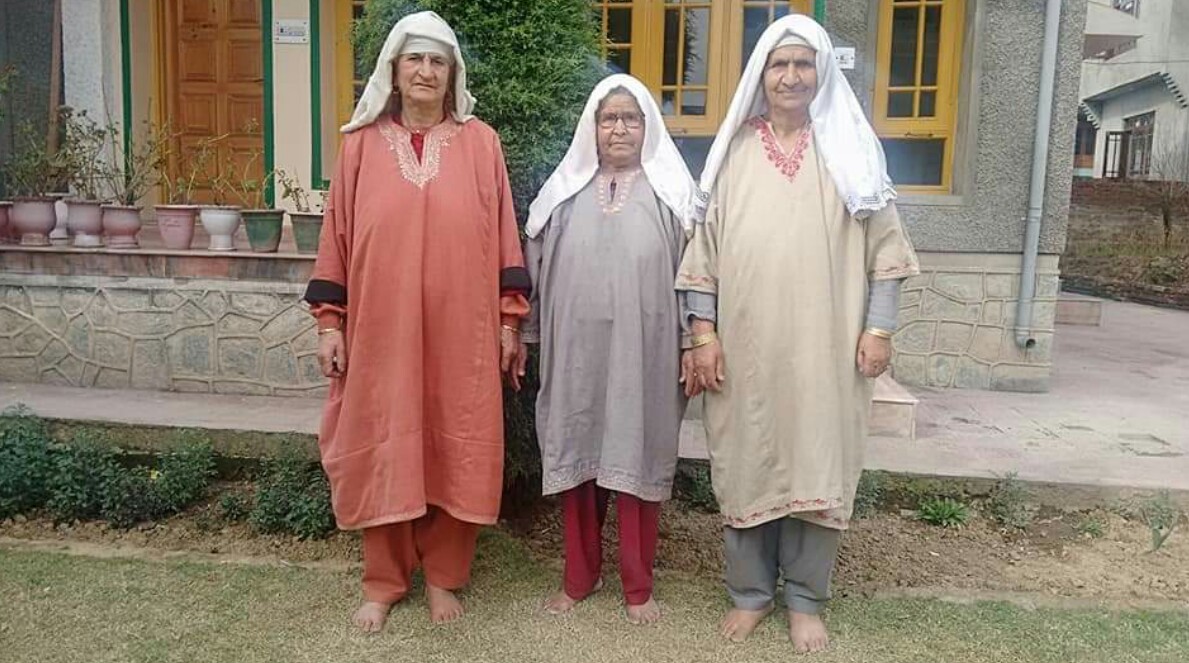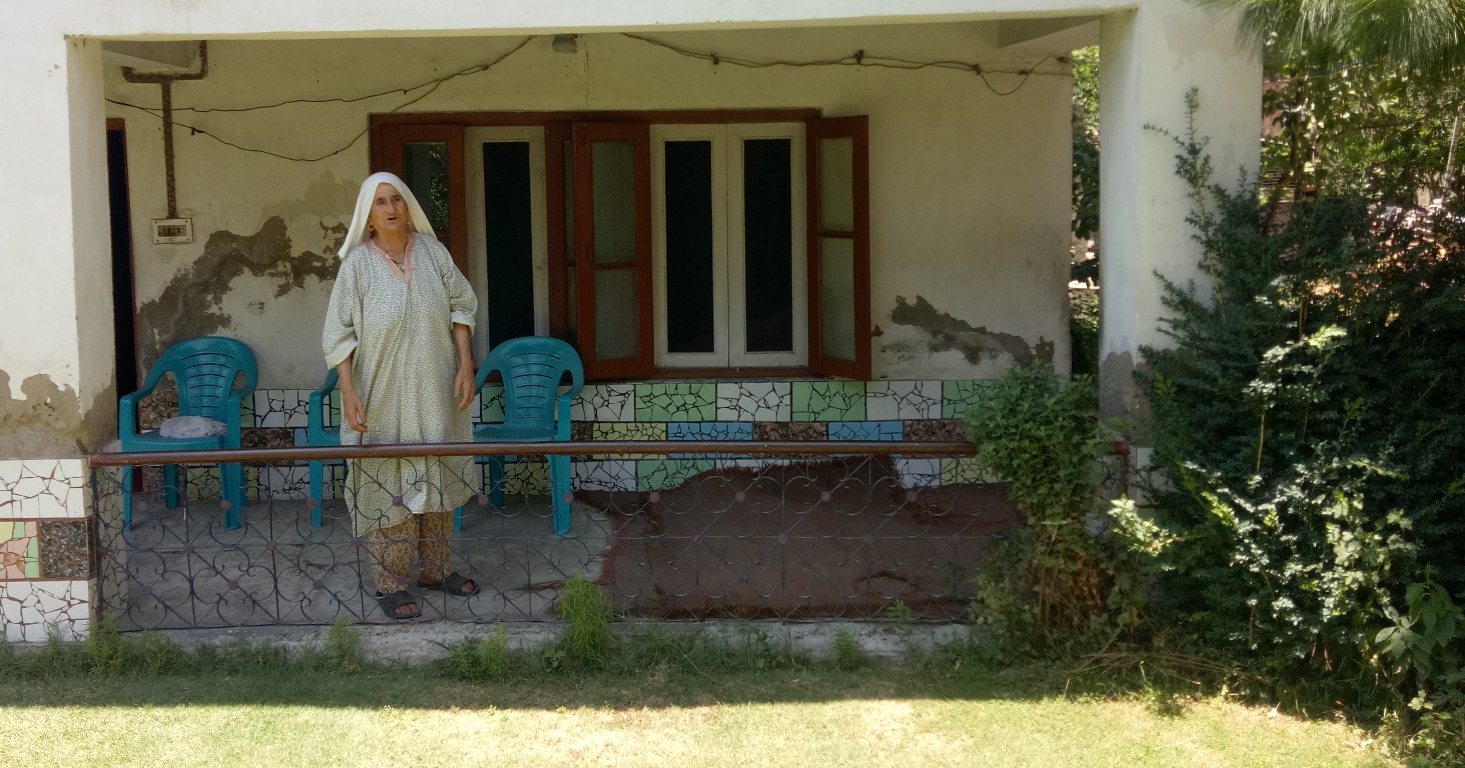Zoun, Jiger, Maal: The Legend of Three Kashmiri ‘Soul Sisters’

Arif Nazir is a Staff Writer at the Mountain Ink.
They came as brides in one Dar family some sixty years ago and became each other’s shadow for a lifetime.
They sit akin to meditative matrons mulling over their beloved loss.
Amid their poised posture, masked women intermittingly walk in twos, and threes, to pay condolence for their departed sister, Jiger.
Their silent stares speak volumes yet their sisterhood remains an example to be lived and adored by their kin.
Having seen so much of the world around them changing, both Zoun and Maal have come of contemplative age.
But their musings in a mournful ambience make a sullen statement for those who always knew them as emphatic elders.
Support Our Journalism
You are reading this because you value quality and serious journalism.
But, serious journalism needs serious support. We need readers like you to support us and pay for making quality and independent journalism more vibrant.
“Jigeri kor waadi poori, easi ti chu panini waari karun (Jiger fulfilled her promise, we too have to, on our own turns),” says Zoun Maas while wishing to be reunited with her sisters hereafter.
Before Jiger—the lady who lived up to her name: adored—would depart recently, Zoun had first seen her sixty years ago and knew instantly that she was a perfect match for her brother-in-law, Ghulam Ahmad Dar.
That casual meeting took place in an era of simplicity and austerity, when weddings were yet to become some complicated social affair in the valley.
With age, as Zoun became Zoun Maas, she grew closer to Jiger, who eventually came as a bride in the Dar house of Hyderpora, then purely an agrarian society devoid of contemporary time’s plush housing frontage.
They were soon joined by another sister-in-law, Maal, married to their third and the youngest brother-in-law, Mohammad Shaban Dar.
The three sisters-in-law straightaway connected and their sisterhood withstood the test of times—before Jiger’s recent passage would reduce the troika to the distressed duo.
Today Zoun Maas and Maal Maas are recalling their departed sister with tearful eyes.
“I was the first bride in the Dar family,” recalls Zoun Maas, whose wedding with Gul Mohammad Dar coincided with ‘Kabeal Jung’ — the tribal war of 1947.

By the time tribals retreated, her mother-in-law became sick and passed away, leaving Zoun with the family responsibility.
A great grandmother today, octogenarian Zoun Maas held her family together like an affectionate matriarch. “I’ve led a big family for almost sixty years,” Zoun Maas says. “It became possible, as I had Jiger and Maal at my back.”

Even as the Dar family is now living in five different households, Zoun Maas still holds sway over the entire clan.
With gentle smile brightening up her furrowed face, Zoun Maas continues to recall the legend of the three sisters-in-law.
“Akh moath ti akh kath ieas (We were united by word and deed),” says Zoun Maas raising a fist.
Together, she continues, they battled the tough times — be it poverty, hardships, and domestic workload.
But what challenged them was the untimely intrusion of forces in their neighbourhood and house, shortly after Kashmir witnessed the armed uprising against Indian state in the late eighties. In the ensuing military offensive pursuing rebels in residences, Kashmiri homes faced sudden raids and crackdowns.
“Whenever stern forces would show up and storm our house, we used to rub ash all over each other in the outdoor-kitchen,” Zoun Maas recalls the life under the shade of gun in Kashmir.
“We could do it together. But I don’t know how a single household woman managed that terrible situation!”

Of the three, Zoun always has been the most outspoken, blunt and humorous, when late Jiger Maas was a very shy, sober, and humble lady. Maal Maas, on the other hand, would always speak less, but often get annoyed at small things.
Between the ‘poles apart’ Zoun and Maal, Jiger would act as a crisis manager and pacifist.
“I was mostly blunt with Jiger, who never took my outbursts to her heart, but Maal was a little sensitive,” Zoun Maas recalls.
Whenever Zoun’s ire fell on the Dar house, Jiger would furtively convey Maal’s annoyance to her.
Once realizing her rage result, Zoun Maas would walk up to her sulking sister and say, “Maalai, leagyae benni! (I’m all yours, my sister).”
Hearing this, Maal’s hurt-hardened heart would melt away, and she would rise to embrace her motherly figure, Zoun Maas.
The two would cry, while consoling each other in a tight embrace.
All these moments make the otherwise common household sisterhood of the trio as a departure from the usual. There was an unwavering trust—which encompassed everything in their lives—including some relation-threatening embittered moments.
The same trust came handy for Zoun Maas when after a certain point in life she became a regular shrine-goer and devoted saint-visitor for seeking some spiritual solace.
During her wandering dervish stint, her sisters happily held the fort for Zoun.
Jiger mostly did the cooking, while Maal would be busy with farming and domesticating animals.
Yet at any special occasion within the neighbourhood or elsewhere, the trio always showed up together, as one unit.
“Be it marriage or mourning, Eid folksong ceremonies or gatherings by the streamside, we would always be by each other and around each other,” recounts Zoun Maas. “We were together in everything in life.”

The same belief made them touch peoples’ lives positively.
Back in the day, a local widow had approached Zoun for some ration, as she was without food for days together.
“I asked Jiger to quietly get a rice-bag from our barn, wherefrom I took it where it was supposed to be,” she recalls.
“Jiger, my soul sister, never enquired about the rice-bag or questioned my way of doing things. She was heavenly, who had a firm belief in our bond. If we could’ve some of that unquestionable belief in today’s relations, then most of our problems would never rear an ugly head.”
But with their mediator gone, Zoun and Maal are now trying to become each other’s support. By sitting in deep meditation amid mourning, they apparently compensate the earthly loss with the possible heavenly reunion.
And that’s where the sisterhood is truly becoming a match made in heaven!
To help us strengthen the tradition of quality reading and writing, we need allies like YOU. Subscribe to us.
Mountain Ink is now on Telegram. Subscribe here.
Become Our Ally
To help us strengthen the tradition of quality reading and writing, we need allies like YOU. Subscribe to us.














this is a magnificent tribute to the glory of sisterhood ….the unbreakable bond neither heaven nor earth can tear apary….formed over years lives on in the heart….
linn